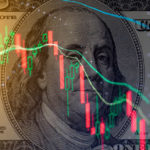
(NEW YORK) — Growing recession alarm at the outset of this year warned of a coming business slowdown and significant job losses — until a government report last month showed that unemployment stands at its lowest level in more than 50 years.
A couple weeks later, in mid-February, fresh retail sales data blew past economist expectations, suggesting resilient consumer spending, the lifeblood of the U.S. economy.
The blockbuster economic performance boosted hopes that the economy would avoid a recession altogether.
Treasury Secretary Janet Yellen, speaking to ABC News’ Good Morning America last month, rejected concern about a downturn, saying the economy remains “strong and resilient.” Goldman Sachs cut its odds of a recession in the next 12 months to 25%.
The U.S. economy is humming, at least in some key metrics, but most economists say that the nation remains on a crash course toward a likely recession within the next year. A survey conducted last month by the National Association for Business Economics found that 58% of economists expect a recession in 2023.
An aggressive series of interest rate hikes at the Federal Reserve is expected to continue cooling the economy, economists told ABC News, noting the decline of personal savings that previously fueled the pandemic recovery.
To be sure, economists often err in their forecasts and some told ABC News that the path of averting a downturn is still possible.
Jeffrey Roach, chief economist at LPL Financial, called the coexistence of strong economic data and persistent recession fears a “conundrum.”
“There’s so much flux in the market,” he added, acknowledging the mixed signals sent by the economy in recent weeks. “The economy is still in this massive retooling from the pandemic.”
The high prices that weigh on the economy trace back to the pandemic-induced supply bottlenecks that made it harder to access a slew of goods, including essentials like gas and food.
Meanwhile, COVID forced billions worldwide indoors, shifting demand away from concert tickets and restaurant meals and toward the exact goods in short supply. The Russia-Ukraine war has exacerbated the shortages and sent prices even higher.
The Federal Reserve has imposed a string of aggressive rate hikes since last year that aim to lower inflation by cooling the economy and choking off demand. The approach, however, risks tipping the U.S. into a recession and putting millions out of work.
The Fed’s rate hikes have helped bring inflation down significantly from a summer peak. However, the policy has failed to slow the overall economy, as evidenced by the recent strong economic data, economists told ABC News.
The combination of easing inflation and sustained economic growth have driven hope among some of a “soft landing,” in which the Fed slows the economy and brings down inflation, while preventing the U.S. from entering a recession.
But a slowdown brought about by the Fed typically lags months behind a given rate hike, Nancy Lazar, chief global economist at Piper Sandler, told ABC News.
“Just because the economy is doing OK today doesn’t mean the economy won’t go into recession,” she said. “It’s happening slowly.”
Some parts of the economy have shown signs of a slowdown. Home sales fell for the 12th consecutive month in January, reaching their lowest rate since November 2010, according to the National Association of Realtors.
The personal savings rate fell to an all-time low in December, suggesting that U.S. consumers have spent down much of their pandemic reserves.
Tina Quigley, president and CEO of the Las Vegas Global Economic Alliance, a group tasked with attracting and boosting economic activity, said the city thrived last year as leisure and travel bounced back from a pandemic lull.
By the end of last year, the average nightly rate for a hotel room in Las Vegas stood at $165, well above the pre-pandemic high of $127, she said. The Las Vegas airport saw 52.6 million passengers pass through its doors last year; a jump from 51.5 million in 2019.
“I don’t want to paint a picture of everything being sunshine and rainbows but certainly 2022 was a very good year,” she said.
Still, the organization assisted far fewer companies in establishing locations in Las Vegas last year compared to the year prior, suggesting recession fears had curtailed business plans and may foretell a further slowdown, Quigley said. The group helped 11 companies locate in Las Vegas last year, a sharp decline from 39 a year prior, it said.
“That pipeline has slowed down,” Quigley said. “We’re preparing for a recession, but not overreacting to it.”
Roach, of LPL Financial, said he expects a recession but recent strong economic indicators raise the likelihood of a mild downturn.
“Recessions are often necessary to break the back of inflation,” Roach said. “But given the fact that there’s so much fundamental stability in the economy, that recession won’t be as bad as your average recession.”
Zweli’s, a chain of three Zimbabwean restaurants in Durham, North Carolina, has enjoyed an uptick in business in recent months, said co-owner Leonardo Willliams, who runs the company with his wife.
Whereas last year a restaurant had about one or two tables occupied at a given time; now it’s four or five, he said. The company plans to hire 10 workers over the next month, increasing its workforce by 40%, he added.
“Business is slowly creeping back up,” he said.
However, rising costs have eaten away at the company’s profits, since major food purveyors charge twice as much for some products as they did before the pandemic, he said. And he fears that a recession would force corporate clients to cut back on catering, which accounts for 70% of the company’s revenue.
“It’s scary,” he said. “As small businesses, we’re equipped to be problem solvers but how much can one take?”
Copyright © 2023, ABC Audio. All rights reserved.
